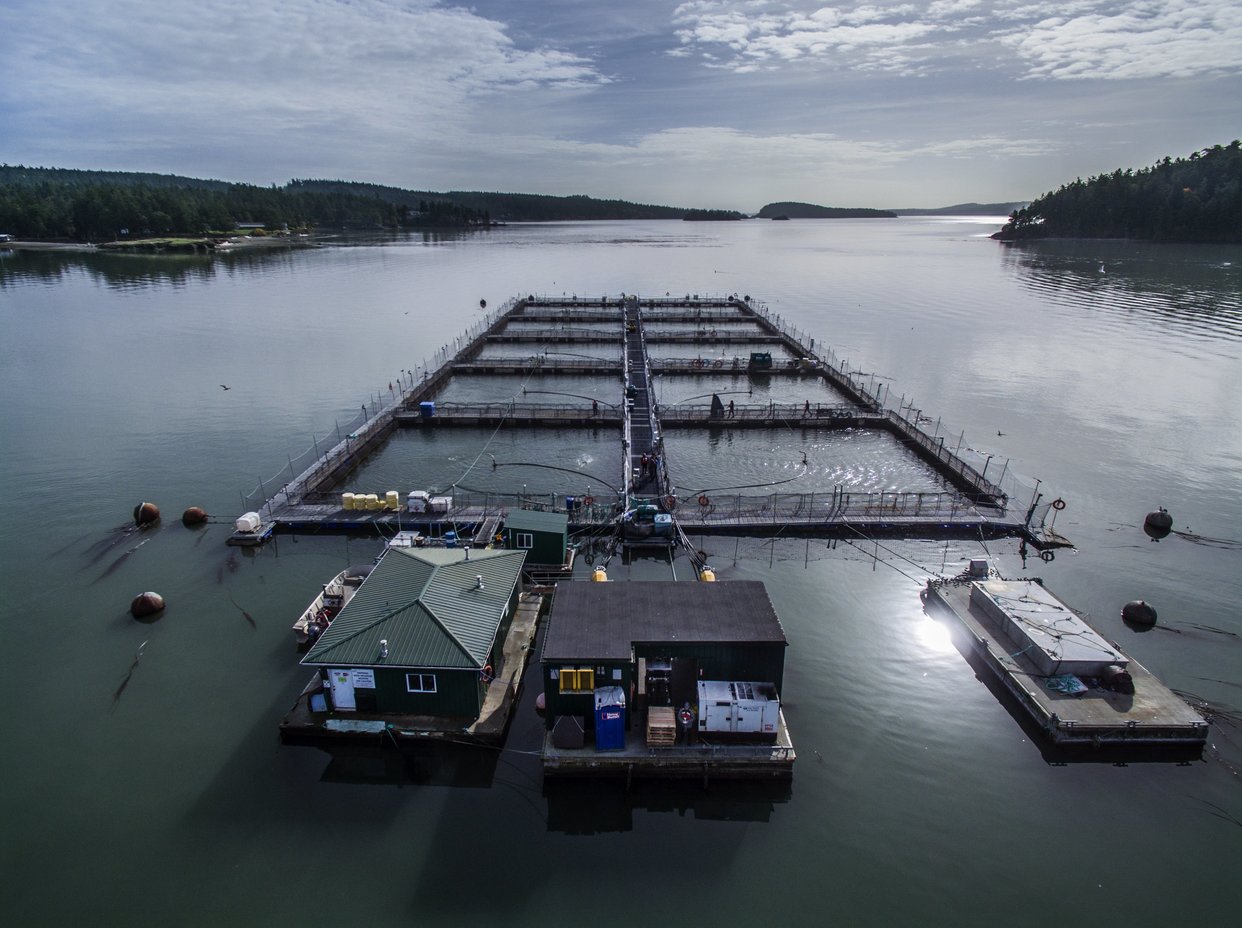Cooke Aquaculture CEO Glenn B. Cooke traveled to Olympia, Wash., the state’s capital, last week in an attempt to sway lawmakers not to enact a ban on Atlantic salmon aquaculture.
The New Brunswick, Canada-based fish farming firm Cooke leads was responsible for the escape of a quarter-million non-native fish into Puget Sound in August 2017, leading the Washington State Senate and House of Representatives to consider bills to phase out and then ban Atlantic salmon farming in the state by the time that leases on salmon net-pens run out by 2025.
In an interview with King 5 News, Cooke called the legislation an “overreaction.”
Cooke compared the proposed ban to “something you would hear in the Soviet Union,” and said that were the ban to go through, “good working people [would be] out of jobs.”
Drawing attention to the fact that most fishing quotas are decreasing, and advocating against importing fish from other countries like Norway, Scotland and China, he highlighted the role he believes aquaculture should play in the United States, which he noted is a “net importer of fish.”
He also cast aspersions on a report created and issued by state investigators, which concluded that biofouling likely caused the collapse of the company’s net pen farm, leading to the escape.
Cooke said the mussels and debris that accumulated on the nets could have grown after the collapse but before the investigators documented the site.
“We believe the cages were in good shape, the moorings were in good shape,” he said.
Nonetheless, Cooke said his company has taken responsibility for the escape and concessions, including paying for more inspections and infrastructure improvements, if it is given a second chance to raise Atlantic salmon in Washington. Cooke also offered to raise only female salmon in Washington so that in the event of another escape, the fish would not be able to reproduce.
“This was a terrible accident and we felt horrendous about it…But to ban a company, that’s serious stuff, and in the end, it’s a lot of a lot of good working people’s jobs, and we want to fight for them,” Cooke said.
Cooke’s lobbying efforts appeal to have failed, with both the House and Senate passing similarly-worded legislation that would enact a full Atlantic salmon farming ban. If the two houses can iron out the minor differences in the two versions of the bills, the measure will go to Governor Jay Inslee’s desk, where he is expected to sign it into law.
The ban will cost Cooke millions of dollars. Cooke said the company operates nine Atlantic salmon net-pen farms in Washington, representing six percent of Cooke’s farming operations valued at $76 million. However, permits for two of those farms have already been revoked by Washington’s Commissioner of Public Lands.
However, Cooke Aquaculture spokesperson Joel Richardson the company has other recourse for fighting the ban – the company will pursue mandatory arbitration under NAFTA if the Washington legislature tries to phase out Atlantic salmon farming, he said.
“There’s a trade agreement that provides for relief in exactly this type of situation where a foreign company is treated worse than, and is disadvantaged against, its domestic counterparts,” Richardson said. “If the Legislature approves a ban on our operations, Cooke will seek to recover our confiscated investment, plus costs and lost profits, through mandatory arbitration against the State of Washington under Chapter 11 of the North American Free Trade Agreement.”
This story was originally published on SeafoodSource.com and is republished here with permission.







